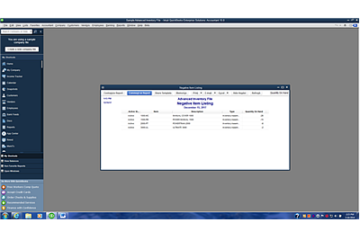Bookkeeping is the backbone of financial management for any small business. It involves the meticulous recording, organizing, and tracking of all financial transactions. Effective bookkeeping not only ensures compliance with legal requirements but also provides a clear picture of your business’s financial health, enabling better decision-making. Bluemount Backoffice Solutions, a trusted provider of bookkeeping services, emphasizes the importance of accurate and efficient bookkeeping practices. This comprehensive guide will walk you through the essential steps to manage bookkeeping for your small business effectively.
Bookkeeping Basics
At its core, bookkeeping revolves around transactions and accounts. Every financial activity, be it a sale, purchase, or expense, is a transaction. These transactions are recorded in various accounts, which are categories used to organize financial information. The double-entry system is a fundamental principle of bookkeeping, where each transaction affects at least two accounts, maintaining the balance of the accounting equation: Assets = Liabilities + Equity.
Choosing the Right Bookkeeping Method
Small businesses typically choose between two primary bookkeeping methods: cash basis and accrual basis.
Cash basis bookkeeping records revenue and expenses when money changes hands. It’s straightforward and suitable for businesses with simple financial activities. In contrast, accrual basis bookkeeping records revenue and expenses when they are earned or incurred, providing a more accurate financial picture but requiring more complex tracking.
Setting Up Your Chart of Accounts
A chart of accounts is essentially a list of all the categories your business uses to classify transactions. It serves as the backbone of your bookkeeping system. Typical categories include:
⦁ Assets: Cash, accounts receivable, inventory, and equipment.
⦁ Liabilities: Accounts payable, loans, and mortgages.
⦁ Equity: Owner’s capital and retained earnings.
⦁ Revenue: Sales and service income.
⦁ Expenses: Rent, utilities, payroll, and office supplies.
This structure helps organize financial data, making it easier to track and analyze.
Utilizing Bookkeeping Software
Manual bookkeeping is possible, but using bookkeeping software can significantly streamline the process. Software like QuickBooks, Xero, and Wave offer automation for many tasks, including invoicing, expense tracking, and generating financial reports. These tools reduce errors and save time, allowing you to focus more on growing your business.
Recording Financial Transactions
The heart of bookkeeping is recording every financial transaction. This should be done regularly—daily, weekly, or monthly—depending on your business’s volume of transactions. Each entry should include the date, amount, and description of the transaction.
For sales, record each transaction when it occurs, noting the payment method and amount. For expenses, track every outlay, keeping receipts and categorizing them appropriately. Regularly reconcile your bank transactions with your records to ensure accuracy and identify any discrepancies.
Managing Accounts Receivable and Payable
Efficiently managing accounts receivable and payable is crucial for maintaining cash flow.
Accounts receivable involves tracking money owed to your business by customers. This includes timely invoicing and following up on overdue payments to ensure a steady inflow of cash.
Accounts payable involves managing your business’s obligations to suppliers and creditors. Keeping track of due dates and making timely payments helps avoid late fees and maintain good supplier relationships.
Reconciling Bank Statements
Bank reconciliation is the process of comparing your recorded transactions with your bank statements to ensure they match. This monthly task helps identify and correct discrepancies, ensuring your financial records are accurate. Regular reconciliations also help detect any unauthorized transactions or errors early.
Generating Financial Reports
Financial reports are vital tools for understanding your business’s performance. Key reports include:
⦁ Income Statement: This report shows your revenue, expenses, and profit over a specific period.
⦁ Balance Sheet: It provides a snapshot of your business’s financial position, including assets, liabilities, and equity.
⦁ Cash Flow Statement: This report tracks the flow of cash in and out of your business, highlighting your liquidity.
Regularly reviewing these reports helps you make informed decisions and identify areas for improvement.
Ensuring Tax Compliance
As a small business owner, you must comply with various tax obligations, including sales tax, payroll tax, and income tax. Collecting and remitting sales tax, withholding payroll taxes, and filing annual income tax returns are essential. Consulting with a tax professional can help you navigate the complexities of tax laws and ensure compliance.
Maintaining Accurate Records
Accurate and organized records are the cornerstone of effective bookkeeping. Here are some best practices:
⦁ Digital Records: Use digital tools to store and organize receipts, invoices, and financial documents. Cloud storage solutions like Google Drive or Dropbox can help.
⦁ Data Backup: Regularly back up your financial data to prevent loss due to technical failures.
⦁ Organization: Develop a system for categorizing and storing documents, such as separate folders for different types of expenses, invoices, and bank statements.
Reviewing and Adjusting Your Bookkeeping Practices
Periodic reviews of your bookkeeping practices and financial records are essential. Conducting internal audits and making necessary adjustments ensures accuracy. If you’re uncertain about any aspect of bookkeeping, consider hiring a professional bookkeeper or accountant to assist you.
Planning for the Future
Effective bookkeeping isn’t just about tracking current finances; it’s also about planning for the future. Use your financial data to create budgets, forecast future revenue and expenses, and make strategic decisions about business growth, marketing, and investments.
Conclusion
Bookkeeping is a vital task for any small business, providing the foundation for financial stability and growth. By understanding the basics, choosing the right methods, using appropriate tools, and maintaining accurate records, you can ensure your bookkeeping practices support your business’s success. Regularly reviewing your financial reports and seeking professional advice from bookkeeping firm when needed will help you stay on track and make informed decisions for your business’s future. Effective bookkeeping not only keeps you compliant with legal requirements but also provides valuable insights that drive strategic planning and sustainable growth.



